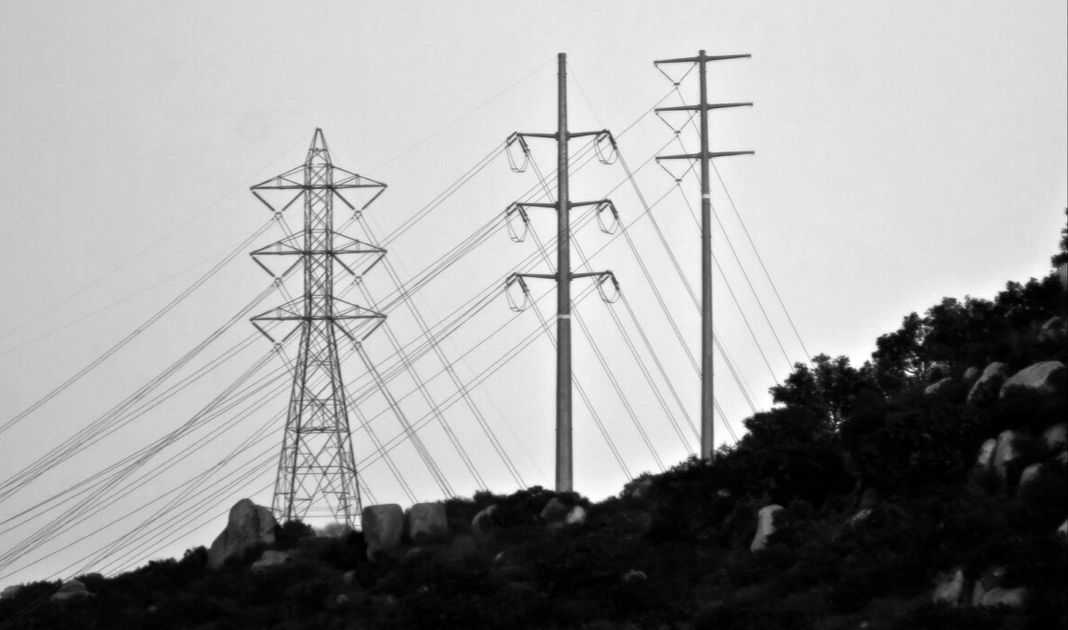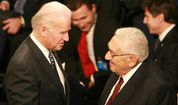“The Anxious Dream”- à rebours? A political plan for Poland’s victory and peace in the East. Part 2

(Source: flickr.com)
Without a full victory and the weakening of Russia or its collapse, the result of the truce will only be a pieredyszka, a temporary rest that imperial Russia, in this case in the Soviet edition, will use to prepare further movements, reforms or a rebuilding of its army. And this may only be the first campaign of the great war for Eurasia. The current war for Eurasia will have many scenes, so Russia cannot be given this chance. The Russians will do anything to kill the idea of cooperation between the nations of the Baltic-Black Sea Bridge: cooperation with Germany and France, an information policy, a heating up of sentimentality on the continent towards Russia, caviar, dumplings, poetry and ballet. At the same time, the mutilation of Ukraine, the extermination of a hostile people, deportations, and the destruction of culture and the material world.
It is worth emphasising that this war will decide the fate of Belarus, which will follow the path determined by the result of the war, and in this sense it is also a pivot state. A Russian victory would cement the authorities in Minsk. A victory for Ukraine, supported by its allies, may turn Belarus around. Which would radically change the security situation of the Polish state, similarly to the accession of Sweden and Finland, will change the situation of the Baltic states and eliminate the problem of the Suwałki Gap. This means that the Polish elite should do whatever it takes to ensure that these two countries join NATO and tie themselves closely with US power.
The People’s Republic of Poland – a vassal state vis-à-vis the Soviet Union – did not even dare to think about a Polish eastern policy. The borderlands itself (Polish, Kresy) appeared to the Polish independence intelligentsia in the People’s Republic of Poland as a story from the old days, a bit romantic, a bit manor-like, and a bit incongruous with the realities of the 20th century. Certainly appeared to be the case of a closed past.
In the years 1989–1991, a miracle happened. The Empire in the East collapsed. Not as the result of a war with our participation, but as the result of the world war between the USSR and the USA – and more specifically, the course of the Cold War and the balance of power formed at its end between the superpowers, which broke the Soviet continental empire, freeing the peoples and nations trapped in it. Then almost all of them ran for freedom – and certainly all the nations of the Baltic-Black Sea Bridge.
Implementing the idea of Mieroszewski and Giedroyc, the new Poland recognised all the new and independent states in the East. Over the following years however, we believed that the power of the West, its institutions and lifestyle, as well as the values that were so different from those embodied by the Russian empire, would “do” for us as an eastern policy, which for several hundred years consisted of a very simple goal: to prevent the possibility of the Russians playing for balance in the European political system, which usually results in overwhelming the agency and developmental self-determination of Poland and other countries in the region.
Our strategic restraint as the Third Polish Republic resulted from a bad understanding of the tension between the Piast and Jagiellonian politics and a clear misunderstanding of contemporary influences and instruments of pressure on the policy of another state, so that these instruments serve their own interests.
The Jagiellonian policy complements the Piast policy, and does not constitute a disjointed alternative to it. There is no one without the other and vice versa. This conclusion contains the curse of the position of the Polish state, which has traditionally had too weak a population and economic potential to survive with its own “agency” against Russia and Germany, when both of these entities are powerful and well-governed. Economic consolidation, development, the construction of infrastructure and taking care of shaping the internal and external structure of strategic flows so that they serve Poland, through the “Piast” connection to the Atlantic-oriented economic zone, must be complemented by a Jagiellonian policy, consisting in shaping a Polish-friendly space in the East, from which there will be no threats to “Piast” consolidation. This space should be ideally shaped geopolitically, cooperating with us, for example, in shaping strategic flows. Then it will even add strength to Poland’s power.
The Jagiellonian policy appeared to be imperial because it referred, on a subconscious level, to land, territories formerly colonised by the Polish Crown, where Poles dominated in terms of property and wealth. That is why this policy was associated with imperial domination and, despite our sweet imaginations, with the often bad treatment of the Ukrainian or Belarusian population.
Such perception and design of this vision, for example by criticising the postulate of the Jagiellonian policy in the 21st century, results from a misunderstanding of the determinants of strategy in the 21st century. In the past, the main source of power, and therefore the influence and connections on which politics is based, was land and capital resulting from the labour of the land, from the ownership of the land. So from territories that yield taxes, produce, resources, capital and recruits. The more recruits the better, because this number also mattered. During this period, the mental maps of the former Polish Republic and its former Borderlands (Kresy) were formed, as well as the borderland culture, which we remember with sentiment while browsing through old albums. Of course, this understanding of the source of power resulted in ethnic conflicts, civil wars, including genocide. We also have a lot to accuse ourselves of, such as the political repressions against the Ukrainian minority in the eastern provinces or the inappropriate treatment of the Cossacks at one time.
In the meantime, the industrial revolution took place, which hardly ever came to the Polish Borderlands until the 20th century, and yet it significantly changed the sources of its power elsewhere. Strategic flows started to be of great importance. The movement and marches of the army were still of great importance, but it began to mean the movement of people by trains, cars, planes, the movement of goods, raw materials, energy, capital, technology, knowledge and data. A changeable and fluid system of forces began to be created, which, organised by the state, determined influence, instruments of pressure and shaping relations for the benefit of itself and its power. This was the expression of agency in a modern sense. It is the strategic flows that constitute the chessboard of the international game. Of course, there are still important places in the region, such as Małaszewicze, the Baranowicze communication junction or the port in Gdańsk, but they result from the strategic flow corridors that generate relative changes in power.
Shaping cooperation in the East to the benefit of the interests of the Polish state can be achieved through capital, regulatory and business issues that generate levers of political pressure, which must be reckoned with in everyday politics. But for this you have to be and act “in close quarters” in the East.
The ongoing information revolution also overlaps with this. Information processing and transmission have become both a commodity and a weapon in the fight for perception and for building the power of agency. This growing phenomenon distracts us even more from any territorial revisionism, while at the same time strengthening the essence of controlling the rules by which strategic flows take place.
Thus, a Jagiellonian policy in the East should shape the geopolitical environment of the Polish state, without which there is simply no Piast policy. This, however, is something completely different than territorial claims or sentimental chats about Wilno or Lwów, or Poles’ self-exaltation towards other nations of the bridge.
The Jagiellonian policy of the 21st century is expressed in business, capital penetration, bank expansion, agency in the regulation of these flows, in linking the population from the East with the Polish economic area, in favourable cross-border traffic, in the import of labour supply from the East, pipeline reverse, energy transmission, using transport corridors, the lease of ports in Gdańsk, Klaipeda, Odessa. Finally – in military cooperation to blunt Russian “agency”.
It is interdependence that builds the Jagiellonian policy. Observing it from a distance does not build it, but even undermines the possibilities of Piast consolidation. Especially when the security order in the East breaks with the end of the geopolitical pause, which is repeated cyclically. And this bodes badly for Poland, which has been trying to rebuild financially for 30 years. The reconstruction of Ukraine after the war should change socio-economic relations, liquidate the oligarchs, create a kind of Ukrainian enforcement movement that can build the foundations for a liberal society with a strong middle class, the rule of law and economic predictability, which will enable Polish private business to operate and invest in the east.
In the context of Germany’s attitude towards the war in Ukraine (and this will continue to worsen the longer the war continues and winter approaches in Europe), it is worth recalling a fragment of my text from more than a year ago.
There are two methods of analysing international affairs. The wrong method is the one that tells you to listen only to what politicians are saying and to take into account the personal relationships between them. The user of this method relies on the intentions of the proceedings declared to all.
This method does not anticipate future events, it makes one afraid of synthesis and firm predictions. On the other hand, they know all the names, they are casuistic, they know who is from what party and which circles he represents. It is a factually flawed method, because people (and politicians in particular) lie, they are often wrong, and very often do not understand what is happening, they manipulate or want to please someone or just go with the flow. They have an agenda of their own and pursue their own interests, often hidden.
Such an analysis resembles a conversation at the mangle or chats with an uncle on name day, and has little to do with real politics. It is first of all “wobbly”, if only because even the most sincere human intentions can be changed in one night. This is how the public debate in Germany should be assessed in the context of aid to Ukraine, the import of raw materials in Russia and Germany’s attitude towards us and other countries in the eastern EU.
The second method, the effective one, is one that seeks to understand the structural forces, the real capabilities (not the intentions) that govern the economy and the state, and therefore its politics. Politicians are only obedient agents of these forces or, if you like, their executors, because they have to “slot into” them (in Polish, zmieścić). They often begin to understand the limits of their constraints the day after taking office. Then the question is how to explain this to people who’ve believed them all along. And this is especially true of the people’s representatives, brought to power by the impulse of the street. This is the nature of politics and its ugly face.
Contrary to the ideas of the average voter, these forces are structural and exert such a powerful influence on decision-makers that they have very little discretion. Statesmen are recognised by the fact that, within a narrow field of manoeuvre, they are able to change the existing system of structural forces, transforming them in such a way as to be able to better serve the interests of the state for which they are obliged to care.
We wish this to Zelensky, because the overwhelming structural forces from Western Europe will try to take away his victory and peace, even if he defeats Russia militarily. Because the new geopolitical system in Central and Eastern Europe, after expelling Russia from the European system and effective sanctions on Russian resources, means a relative weakening of German agency and the strengthened military presence of the USA in Europe and a North-South alliance from Finland to Turkey and Romania, which will allow for a new cause for Europe. Thus, there will be enormous pressure on Zelensky when the Ukrainian army crosses the border of Crimea or pushes Russian troops out of the cities of Donbas.
That is why we so often get the impression that politicians are promising us pie in the sky (in Polish gruszki na wierzbie, “pears on a willow tree”). They are actually following the structural forces. Otherwise, they lose their agency, wasting their political careers. The end is bitter, if not brutal.
Each country has its own landscape of structural forces that govern it. Prime Minister or Chancellor, Tsar, King or Emperor. They only try to balance these forces effectively, thus preserving what is commonly called “power” and its credibility. The real “muscles and tendons” of the state function around structural forces, which translate into “levers” for daily agency in politics, otherwise known, especially in the East, as “assets”.
Arguments “from values” in international politics, if they are effective, are only moderately effective. In the case of Ukraine, they work on the basis of an impulse, a way to stimulate people, since many there probably want to live better and in greater freedom, richer and without the “Russian knout”. But tendons and power muscles don’t work that way. In particular, it is the structural forces of the state that determine its socio-economic model. Chancellor Scholz could have said to himself and had promised unheard-of things in the Bundestag, but now he is mitigating his assurances in real time. For this is being pressed by agents of the structural forces. They are made up of raw materials, financial flows, credits, exports, imports, communication with the world and its markets, internal and external supply chains, and division of tasks in industry and agriculture. And it is “served” by specific people who have income from it and their own fields of agency. Masses of people and the entire social contract is based on margins and an agreement between labour, capital and the political world.
Mackinder called this the “Going Concern.” The point is that the model creating the “relational infrastructure” in our east, whether in Belarus or Ukraine, but also in Germany, should no longer be geostrategically oriented towards Russia. This has allowed Russia to enter the real assets of politics, the tendons and muscles of the state, the strategic flows generated by the established model, and therefore also the business and secret services which “stick” to the relational infrastructure, seeking income and influence, especially in the East. In a country such as Belarus they do it extremely tightly, in Germany politicians have to take into account public opinion, but not as much as we would like in Poland, which is clearly visible these days in our western neighbour.
“The strong do what they can and the weak suffer what they must.” Unless the small (or medium) change their status …, deploy efficient armed forces, win wars or have their own energy and innovations.
The countries of our region were too weak in the eyes of Western Europe, so they did not constitute the subject of international politics, because they were not exporters of security and could not influence the status of Belarus or Ukraine, if this status change was not desired by a power ready to go to war for this matter. Ukraine’s great stance in the war, defeating the Russian army, Polish military aid for Ukraine changes this perception. We are dealing with the subjectivity of our entire region. The Americans and the British favour it, because it is in their interest, providing weapons for war like crazy. Their stance is a Mackinder-like classic of geopolitics and a nightmare for German advocates of continental consolidation. The merit belongs to the Ukrainians.
After regaining independence, Józef Piłsudski used to argue that there was room for manoeuvre for Polish politics in the East, in the implementation of the federal concept and in other activities aimed at building instruments of pressure and political influence. It does not have to be a federation concept this time, it does not have to be named in any way that would refer to a Polish advantage in the past. It may be something new, but something that will give a chance for life and development of our part of Europe without Russian domination and without peripheral dependence on Western Europe.
The instruments of Western policy do not reach east or are not that effective, and therefore Western countries must take Poland into account in this region. In characteristic and obscene words, Piłsudski assessed Polish policy towards the West, in which the above recommendations would not be implemented. Then such a policy would order us to be obedient in all directions and secondary to the will of the Western powers of the time. This would deprive us of subjectivity and force us to accept the will of powers outside our region, which limits our security field, but also weakens the development prospects of our business and the possibility of our market and capital penetration.
To summarise this recommendation succinctly: in the west of the continent we were nothing, while in the east we were someone, and this should be guarded in 2022 and in the future.
Autor
Jacek Bartosiak
CEO and Founder of Strategy&Future, author of bestselling books.






Trwa ładowanie...